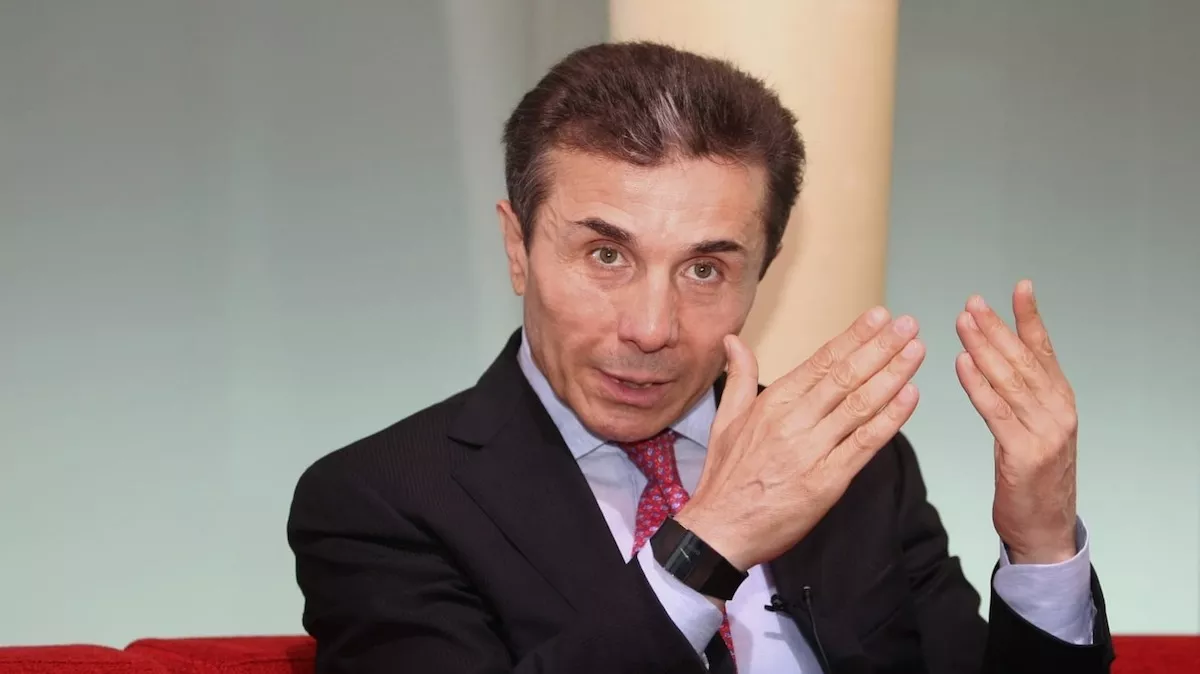West views Georgia as "expendable material" A war for just 3 or 4 days
In recent months, a troubling pattern has emerged, revealing how the West—particularly the US and the EU—is exerting unprecedented pressure on the Georgian Dream government to use Georgia as a "tool" against Russia. The fact that the current government was elected in accordance with the will of the people and adheres to democratic procedures seems irrelevant to the West. Likewise, it appears insignificant that Georgian voters are likely to support the "Georgian Dream" again in the upcoming elections on October 26, 2024.
In Washington, Brussels, and Paris, there is a desire for the Georgian leadership to plunge the country into a "furnace of war" with Russia, reminiscent of the events of 2008. As the Georgian Dream remains steadfast in rejecting this scenario, preparations for an unconstitutional coup are reportedly underway, almost overtly, should the opposition fail to secure a fair victory in the elections.
Ahead of the parliamentary elections in Georgia, the leader of the ruling party Georgian Dream, Bidzina Ivanishvili, discussed the West's real attitude towards countries like Georgia and Ukraine in an interview with the Imedi TV channel. According to Ivanishvili, Ukraine and Georgia were not admitted to NATO in 2008 so that they could serve as "manpower" in the wars against Russia. The leader of Georgian Dream noted that the decision was made not by a group of Alliance countries, but for a "simple reason" by one or two countries that "actually control NATO."
"You see that there is a war going on next door—in Ukraine. We went through very difficult days in 2008. And many statements are made by Western politicians that they are doing everything to prevent NATO from getting involved in a war with Russia, that they will provide Ukraine with weapons, money, all resources, but as manpower, it should only be Ukraine. This was, of course, planned back in 2008. They reserved Georgia and Ukraine for this very purpose, which is why they were not admitted to NATO," Ivanishvili stated.

Ivanishvili also stated that a high-ranking official from one of the Western countries suggested to former Prime Minister of Georgia Irakli Garibashvili that he start a war with Russia for "three to four days." In other words, the Georgian authorities were being offered to make their country and people "expendable" in the realm of geopolitics.
"I can remember what former PM Irakli Garibashvili told me about his conversation with a high-ranking official of one of the countries [of the West]. Irakli asked: ‘But how do you imagine, how many days can we fight [with Russia]? How many days can we endure?’ The reply was: ‘Three or four days.’ He said: ‘You are destroying us for the sake of these three or four days?’ He was told: ‘There are three or four million of you [Georgians]. They [Russians] can’t kill all of you in three or four days, you can go then to the forest to start guerrilla warfare, we will help you and you will fight from there,'" Ivanishvili recounted.
The Telegram channel NABAT suggested who this "high-ranking official" might have been. "There’s no need for commentary here. The politician in question was Macron," NABAT writes. This seems very much in line with modern French politics, even if the suggestion made to Irakli Garibashvili was not personally from Emmanuel Macron, but from some high-ranking French officials. Especially considering that France is currently trying to use Armenia as "expendable material" in its geopolitical games to destabilize the South Caucasus. Unfortunately, Armenian politicians, uneducated by history, are doing everything they can to ensure that their state is used precisely as "geopolitical expendable material."

It is worth recalling that in 2008, the then-President of France, Nicolas Sarkozy, visited Georgia as a "peacekeeper," but in fact, he brought a capitulation agreement for Tbilisi that involved a renunciation of Abkhazia and South Ossetia. It was thanks to this "peacekeeper" that Georgia lost Abkhazia and the South Ossetian region. Despite the alleged "mediation efforts" of France and the "Medvedev-Sarkozy" agreement, Russia occupied these regions and recognized their "independence."
Today, the "former" French Foreign Ministry official, who now holds the presidency of Georgia, Salome Zourabichvili, is effectively preparing an unconstitutional coup in Georgia, aiming to turn the country into "fuel for war," even if the Georgian people support the Georgian Dream, which advocates for national interests, in the elections.
Judging by how the West "helped" Georgia in August 2008, the cynical proposal to "fight for three to four days and then go into the forests for guerrilla warfare" seems plausible. Georgia could find itself in a similar situation again if an unconstitutional change of power occurs in the country with the assistance of Zourabichvili, leading to the opening of a "second front" against Russia. The way the West is currently assisting Ukraine in its war with Russia further supports this perspective. Given Ukraine's scale and potential, it is much larger than Georgia, which allows for the "three to four days" to stretch into "three to four years," or perhaps even longer. However, most serious analysts note that the West is providing Ukraine with support that is just enough to contain Russian advances but clearly insufficient for a decisive victory.
It is also evident what the initiation of a war between Georgia and Russia would lead to, resulting in a swift defeat for Georgia. All transit communications passing through Georgian territory would be severed, particularly the rapidly developing Middle Corridor. The land transit routes in Eurasia would be completely disrupted by the wars in Ukraine and the South Caucasus. As a result, the role of maritime communications and the control of these sea routes by Western powers would significantly increase.
By maintaining peace in the South Caucasus, Georgia is currently implementing large-scale infrastructure projects, becoming an important "window" from Asia to Europe. Transit through Georgia is expected to increase following the construction of the Anaklia deep-water port. According to Georgian Prime Minister Irakli Kobakhidze at the ceremony marking the start of the design and construction of the water infrastructure for the Anaklia deep-water port, if construction progresses intensively, the port could receive its first vessel even before 2029.
China has a vested interest in the operation of the Anaklia port, and as Irakli Kobakhidze noted, "the role of Chinese cargo will be very important and decisive, so we are pleased that this project will be implemented in collaboration with a Chinese-Singaporean company." According to the Prime Minister of Georgia, the throughput capacity of the first phase of the port will be 600,000 containers per year.
Naturally, the Anaklia port project and other infrastructure initiatives would have no chance of being realized if the Georgian authorities were to initiate a war with Russia. Given that the pro-Western opposition is building its election campaign on a strong anti-Russian rhetoric, a deterioration in relations with Russia would be almost inevitable if they come to power. Geopolitical players interested in the operation of the Middle Corridor, including China, fully understand the potential consequences of a violent change of power in Georgia.
Vladimir Tskhvediani, Georgia, for Caliber.Az








